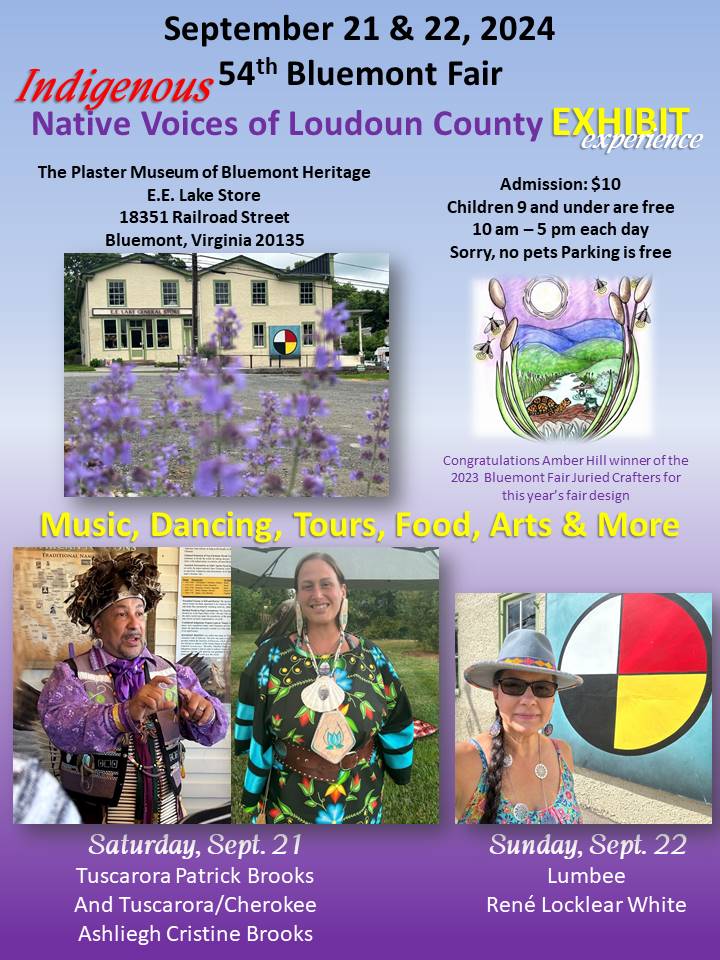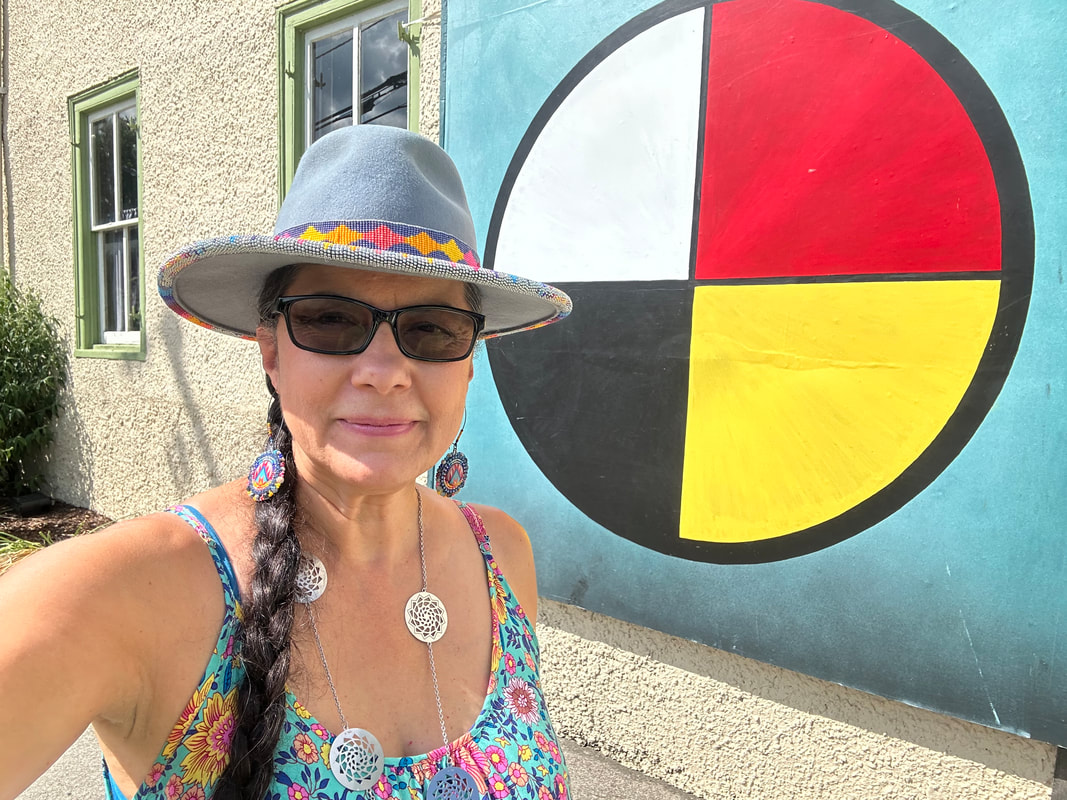Native Voices of Loudoun County Virginia: Past and Present Exhibit Now until Nov. 24, 2024
|
The museum saw close to 300 visitors during the 2024 Bluemont Fair.
Tour Success |
Guided and Self-Guided Tour Days |
|
Self-Guided Tours & Guided Tours are available every Sunday until Nov. 24 from 12:00 noon until 3:00 pm. Greeters and volunteers are available to take questions and offer tours upon request.
Location The Plaster Museum of Bluemont Heritage is located in the E.E. Lake Store at 18351 Railroad Street, Bluemont, VA 20135.
Why Attend? Join us for this year’s enlightening exhibit, dedicated to celebrating the history, culture, and contributions of Indigenous, Native American communities here – then and now. This immersive experience offers a unique opportunity to learn, reflect, and honor the rich heritage of the first stewards of this land. About Massaw. Matthew "Maasaw" Howard has been discovering American Indian sites now for over five years. To date, he has discovered (8) sites from Canada to Virginia. He is a published author of "Adonvdo Yona (Bear Spirit) Mountain, An Ancestral Awakening" and "As I Rest, Let My Face Touch Heaven." He also teaches courses at a local university and lectures around the country on American Indian culture and burial practices. |
Indigenous Tour Guides
|
About Patrick (Littlewolf) Brooks is a Tuscarora wisdom keeper and Army military veteran. Patrick serves in many capacities including Master of Ceremonies at countess Indigenous Pow Wows across the nation. He is married to the beautiful Ashliegh Cristine Brooks who will be accompanies him as a dancer and artist.
|
About Rene' Rene' Locklear White is also a military veteran and has spent most of her adult life living in Virginia (for 23 years). She was born and raised Lumbee Indian in the Saddletree Swamp area, the nearest tributary to her tribe's Lumbee River’s opening in North Carolina. The Lumbee Indians are the largest tribe east of the Mississippi River. The Lumbee's government is headquartered in Pembroke N.C. in the largest county in North Carolina.
In 1885, N.C. state officials recognized the Lumbee as Indian. In 1956, Congress passed the Lumbee Act as the federal government officially recognized the “Lumbee” indigenous name but without federal benefits, as other federally recognized tribe. The Lumbee continue to seek federal recognition. |


